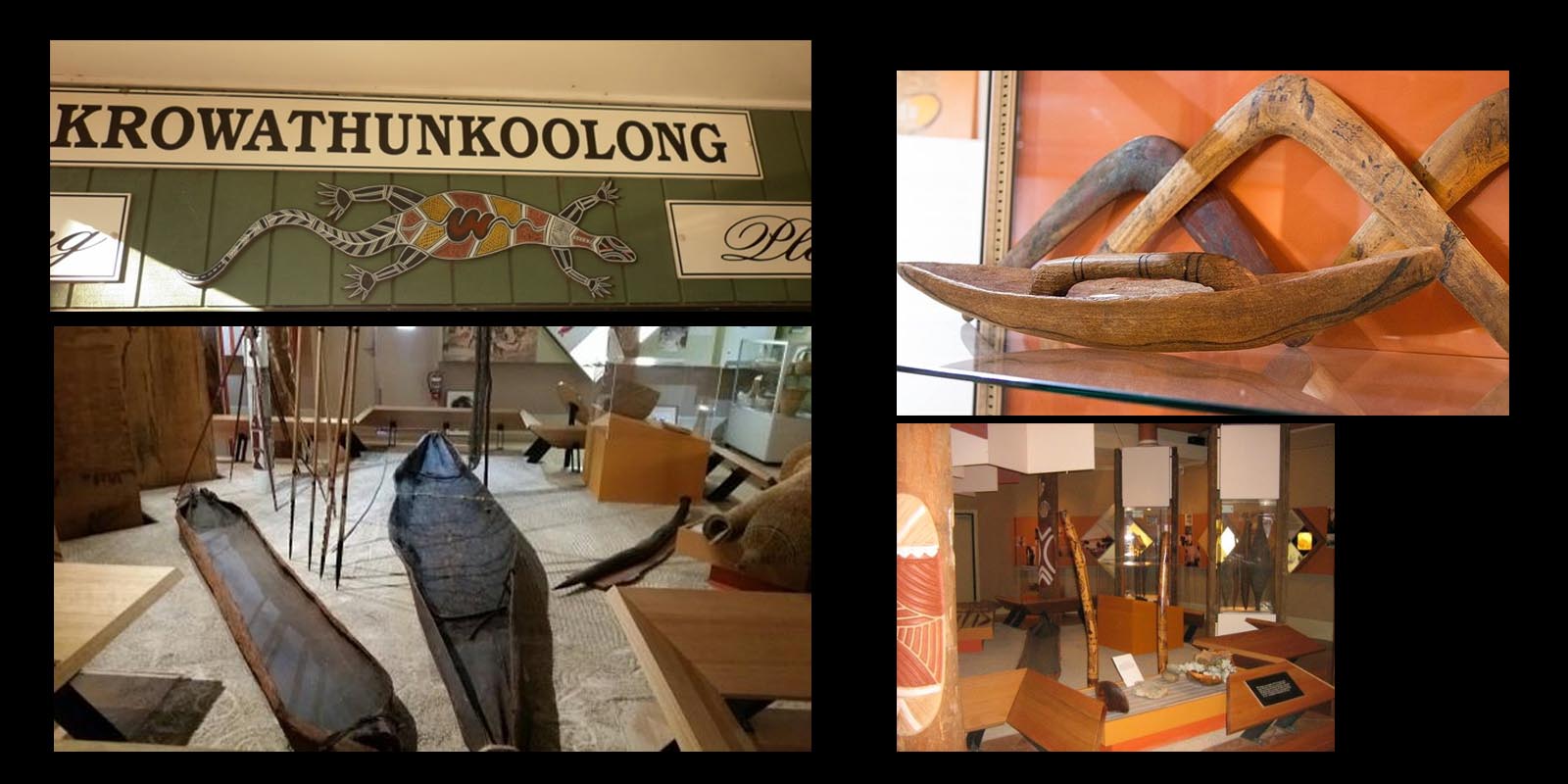Places
Krowathunkooloong Keeping Place
Krowathunkooloong Keeping Place is a museum housing a vast collection of artifacts, art and information where visitors can learn about the history, heritage and culture of Aboriginal East Gippsland. The displays feature shields with traditional markings, boomerangs, bark canoes, grass baskets, videos and an exhibition of contemporary aboriginal art.


The Krowathunkooloong Keeping Place.
Tools
Canoes
Canoes are made from a single piece of river red gum bark or stringybark softened over a fire and bent into shape with an axe and tied at the ends were used to travel the waterways, lakes and ocean Stringybark rope was used to tie branches and bark together for shelter and possum skins were used at night for extra warmth.
Wangin (boomerang)
It took our men several months to make a wangin. To do so, a suitable tree root was selected and roughly carved. It was then skilfully shaped and curved. It was then left to harden under a campfire and then in a swamp.
Woomera (spear thrower)
The butt of a spear fits in the barb of the thrower. His gives extra leverage to help it go a further distance.
Throwing stick
These were used for hunting animals and birds.
Digging stick
The women would use these to dig for roots and underground vegetation as well as a defensive weapon.
Shield
These were used in games and fighting. They were often carved with elaborate details.
String bag
These were made from plant fibre string and were sometimes called dilly bags.
Basket
These were coiled from reeds and varied in colour and design.
Bowl
This was used to carry water and were made from the scooped-out gnarl of a tree.
Sources
The sources used to create the content on this page can be found on Gunai/Kurnai - Further Reading.
